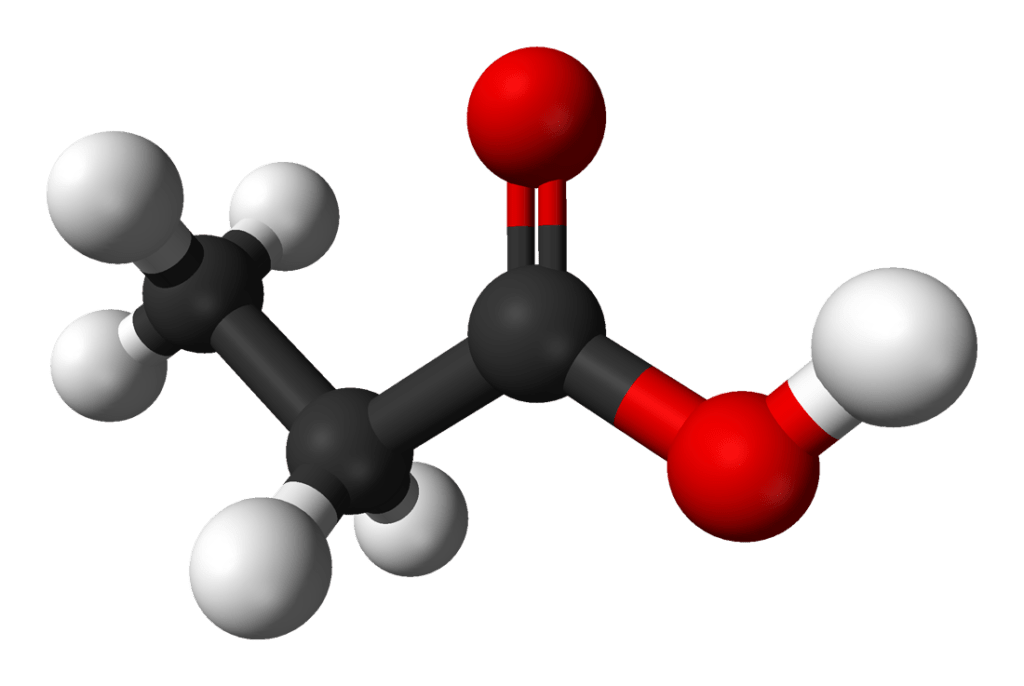Classification:
Carboxylic Acid
CAS No.:
79-09-4
Other Names:
Propionic acid
MF:
C3H6O2
EINECS No.:
201-176-3
Place of Origin:
India
Grade Standard:
Food Grade, Industrial Grade
Purity:
99, 99%

Appearance:
colorless liquid
Application:
Industrial
Brand Name:
The Indian Chemical
Product name:
Propionic acid
MW:
74.08
Storage:
yes
Introduction
Propionic acid is a naturally occurring carboxylic acid with chemical formula CH3CH2CO2H. It is a liquid with a pungent and unpleasant smell somewhat resembling body odor. The anion CH3CH2CO2− as well as the salts and esters of propionic acid are known as propionates or propanoates.
Propionic acid is a type of carboxylic acid with the chemical formula CH3CH2COOH. It is a clear, colorless liquid with a pungent odor and is soluble in water and organic solvents.
Propionic acid is commonly used as a food preservative, as it inhibits the growth of bacteria and fungi. It is also used in the production of cellulose acetate propionate, a type of plastic used in coatings, films, and adhesives.
In addition, propionic acid is used as a precursor for the production of a wide range of chemicals, including pharmaceuticals, herbicides, and plastics. It can be produced through the fermentation of sugars or by chemical synthesis.
Industrial uses
Propionic acid inhibits the growth of mold and some bacteria at levels between 0.1 and 1% by weight. As a result, some propionic acid produced is consumed as a preservative for both animal feed and food for human consumption. For animal feed, it is used either directly or as its ammonium salt. This application accounts for about half of the world production of propionic acid. The antibiotic monensin is added to cattle feed to favor propionibacteria over acetic acid producers in the rumen; this produces less carbon dioxide and feed conversion is better. Another major application is as a preservative in baked goods, which use the sodium and calcium salts. As a food additive, it is approved for use in the EU, USA, Australia and New Zealand.
Propionic acid is also useful as an intermediate in the production of other chemicals, especially polymers. Cellulose-acetate-propionate is a useful thermoplastic. Vinyl propionate is also used. In more specialized applications, it is also used to make pesticides and pharmaceuticals. The esters of propionic acid have fruit-like odors and are sometimes used as solvents or artificial flavorings.
In biogas plants, propionic acid is a common intermediate product, which is formed by fermentation with propionic acid bacteria. Its degradation in anaerobic environments (e.g. biogas plants) requires the activity of complex microbial communities.

